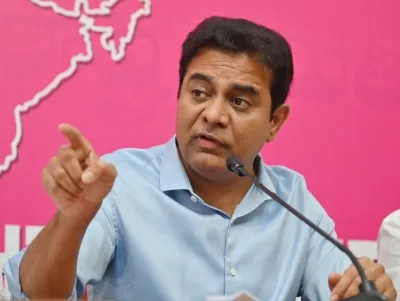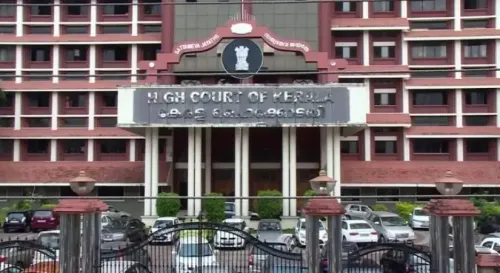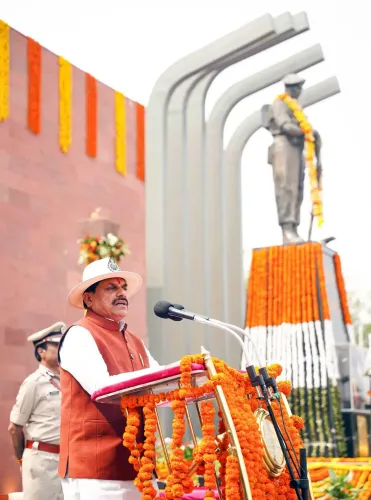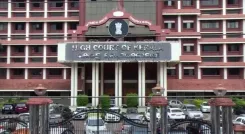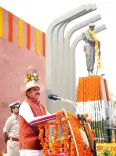How Will the Centre’s GST Overhaul Bring Relief to Citizens and Support Farmers and Small Industries?

Synopsis
Key Takeaways
- GST slabs reduced from four to two
- Lower taxes on essential goods
- Significant benefits for farmers
- New rates effective from September 22
- Focus on local and small-scale industries
Indore, Sep 4 (NationPress) Madhya Pradesh Chief Minister Mohan Yadav remarked on Thursday that the Centre's recent GST reforms are poised to offer significant advantages to a broad segment of the population, simultaneously boosting local and small-scale industries throughout the nation.
Yadav's comments came in light of the Centre's initiative to streamline GST slabs as part of its ongoing reforms aimed at enhancing the ease of doing business.
In a late-night announcement on Wednesday, Union Finance Minister Nirmala Sitharaman revealed the reduction of GST slabs.
Describing this as a “bold” move by the Centre, Yadav stated that Prime Minister Narendra Modi has provided considerable relief to citizens and enterprises during a time of global economic uncertainty.
“As PM Modi hinted at significant relief during his address on August 15, this GST reform within a month is undeniably a bold move, especially amid global economic uncertainty. It also demonstrates his vision for the nation,” Yadav noted.
While in Indore for various events, the Chief Minister informed the media that the new GST reforms would inject fresh momentum into economic growth at both state and national levels.
For example, Yadav highlighted that Madhya Pradesh, being an agriculture-centric state, produces a vast array of agricultural products and equipment.
“Lowering the GST, or even bringing it down to zero on agricultural products and sectors such as health and education, will undoubtedly be of immense benefit to Madhya Pradesh,” Yadav stated.
The Chief Minister further asserted that the GST reforms underscored Modi's commitment to safeguarding the interests of India's farmers.
He emphasized that following the GST reforms, the poor and middle classes would reap the most significant benefits.
“Tractor tyres and components have been reduced from 18 percent to 5 percent, while tractors themselves have decreased from 12 percent to 5 percent. This indicates PM Modi's concern for protecting farmers' interests. Health and life insurance premiums, previously taxed at 18 percent, are now tax-exempt. This is a substantial gift for the average citizen,” Yadav added.
In a noteworthy decision on Wednesday, the GST Council, led by Finance Minister Nirmala Sitharaman, restructured the indirect tax framework by cutting down the existing four slabs to two, eliminating the 12 percent and 28 percent rates while maintaining the 5 percent and 18 percent slabs.
The revised GST rates on services will come into effect on September 22. The GST Council has also reduced taxes on personal care items like hair oil, shampoo, toothpaste, and dental floss from 18 percent to 5 percent. Concurrently, it has increased the tax on cigars, cheroots, cigarillos, cigarettes, and other tobacco products, including alternatives, from 28 percent to 40 percent.
Additionally, the GST Council has lowered taxes on commonly consumed items such as namkeens, bhujia, mixtures, chabena, and other ready-to-eat packaged snacks. Previously taxed at 12 percent, these items will now fall under the 5 percent slab, making them more affordable for consumers.


